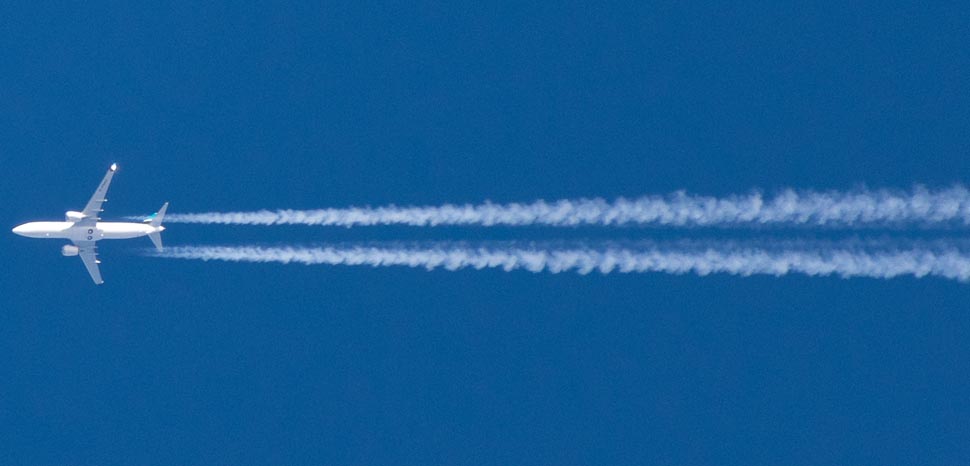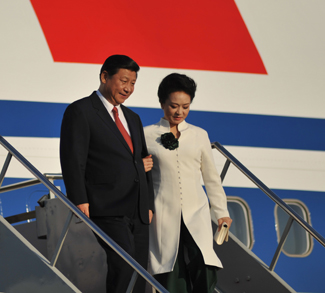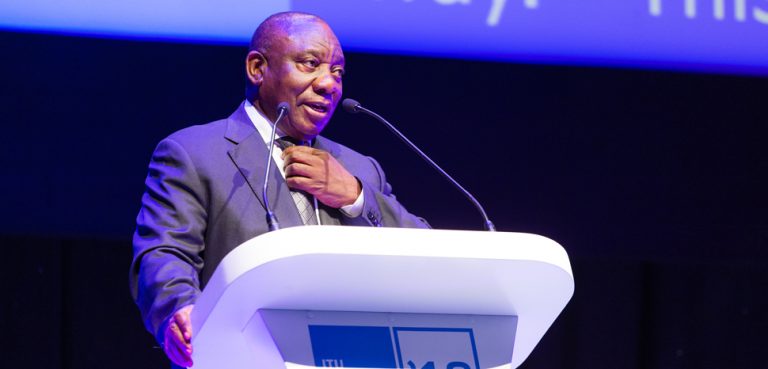Boeing Co. (NYSE:BA) should have addressed the Boeing 737 MAX issues after the Lion Air crash in Indonesia last October. The problems appear to be related to an effort, by Boeing, to avoid Boeing 737 pilots from having to re-certify their qualifications to fly the new 737 Max generation. Some of the automated systems are not only too intrusive, the crews appeared to be ignorant of their existence and thus unable to turn them off. Perhaps this was done at the behest of one or two major customers; nevertheless, Boeing itself should have grounded the plane, ahead of any FAA concerns. Instead, it took President Trump issuing an executive order to this effect on March 13.
Grounding the Boeing Max may have been Trump’s best decision as president so far into his mandate. He took responsibility while Boeing, the FAA and many North American based air carriers did not. Boeing may incur a few billion dollars in costs by grounding the plane, but considering it earned 100 billion in revenues last year, its a small price to pay. The company, however, has tarnished its reputation. It’s interesting to note that Trump was once an airline owner himself: Trump Shuttle. Trump’s older brother Freddie Trump Jr., who suffered from alcoholism and died in 1981, was an airline pilot. He flew for Eastern Airlines, the company that Trump used as a platform for his own Trump Shuttle.
Old Frame + Latest Software, A.I. Algorithms and Avionics = Disaster
The 737 is a strange combination of old and new – and this may be causing the problem. The ‘old’ does mean that pilots have experience flying the plane. But, the new systems and some new design features have changed the plane’s performance characteristics. Thus, it should have been delivered and sold as a new plane, requiring new training.
In fact, the basic ‘structure’ or frame of the 737 MAX dates back to 1967. Successive generations have added new engines, winglets and avionics, including electronic “fly-by-wire” flight control systems. But, the MAX has entirely new ‘geared turbofan’ engines with different power delivery and size. These have changed the way the plane flies. The plane seems to generate too high an angle of attack, causing it to climb too high – too soon. This means it is susceptible to stall, particularly at lower speeds. To avoid this, Boeing has programmed flight control computers to stabilize the aircraft’s nose. However, it seems pilots are unware of this system – especially when they assume manual control of the aircraft.
In other words, the pilots end up struggling for control of the plane with the computers. It’s not unlike Hal taking over the spaceship in Kubrick’s ‘2001 A Space Odyssey.’ Oh, and as reminder to Elon Musk, who wants to shove self-driving cars down our throat…or roads, the Apollo 11 moon landing mission relied on good old fashioned manual driving as the computers failed.
The MCAS and Its Discontents
The guilty system is called Maneuvering Characteristics Augmentation System (MCAS). Its purpose is noble. It prevents, when working properly, the pilots from stalling (causing the plane to drop lift) the plane by pushing the nose down to reach sufficient air speed to regain lift.
The MCAS, however, relies on the ‘angle of attack detector’ (AOA). This device is crucial. When working properly, it measures the angle of attack (the angle between the wings and the air flow). If the angle of attack is too high, the plane risks stalling. In the case of Lion Air, crash analysts were inclined to blame a defective AOA system for the plane’s uncontrollable and rapid descent. The device transmitted incorrect data, triggering the MCAS system to drop the nose against the pilots’ wishes.
The pilots, not knowing why (or of the existence of the MCAS), failed to regain control of the aircraft. They switched off the auto-pilot, thinking they had total control. But, they did not know that the MCAS apparently functions independently even of the auto-pilot. CNN reported that, even after the Lion Air crash last October the 737 Max operating manual does not mention the MCAS system. And, it the pilots do not know of its existence, they cannot possibly be expected to know if it’s malfunctioning or not.
It seems that the Ethiopian Airlines crash occurred under the same technical circumstances. Some have tried to blame it – using veiled hints – on it being a poorly managed African airline. Yet, Ethiopian is one of the best airlines in the world, not just one of the best in Africa.
Thus, when President Trump says modern planes are too complex, he’s partly right. Partly, because modern planes are safer than ever. Electronic systems have contributed to this safety. The problem is that the pilots must know what is and isn’t controlled electronically in order to manage those systems. Modern pilots are, in effect, system managers more than the kind of instinctual pilots of the past. To do their job, they rely on accurate information and properly functioning sensors, which deliver the right data.
The Economic Fallout for Boeing and the United States
The 737 MAX is Boeing’s most important plane, representing about two-thirds of Boeing’s future deliveries and accounting for 40 percent of profit. The catastrophe saw Boeing’s stock sag, wiping nearly $16 billion off its market value on Monday. How much worse can it get for Boeing? In the worst-case scenario, is it possible for the air carriers to cancel orders for the MAX 8? Which Airbus model can replace the troubled plane, Airbus 320 or Airbus 320-neo?
Boeing risks losing huge contracts in China. Beijing can exercise tremendous leverage in its trade negotiations with Washington, given that Boeing is the United States’ top exporter by dollar value. The way it’s handling the Max 8 gives the Chinese sufficient incentive to shift orders to Airbus and not just for the mid-range type market that the 737 family occupies. Boeing’s failure to act quickly – even if it believes it’s in the right – could prompt a huge loss of reputation and sales to ‘stall,’ quite literally.
There won’t be any MCAS system in place anywhere to improve its image. Boeing does have a huge market share and market power. But, others are ready to fill in cancelled orders. Airbus, will be only too pleased to sell its new 200 series (formerly Bombardier C-series) or 320-neo series planes, which many pilots (I have spoken to some) prefer over the 737. Replacing the 737 won’t be easy, of course. The airplane operates all over the world; and, it remains a great airplane. But, airlines need to think of safety above all else. They can’t afford to risk accidents and incidents that are preventable – or apparently so.
Big markets, like the Chinese, could force Boeing to comply with modifying the MCAS, fix the sensors just as Japan – whose airline ANA was the launch customer for the 787 Dreamliner – forced Boeing to fix the exploding lithium batteries on the first 787 jets to be delivered in 2011-2012. It would be best if Boeing took the initiative on its own. It’s still in time to protect its reputation. The FAA, meanwhile, in the interest of safety and the economic interests of the United States may want to act like the ‘adult in the room’ and take action now.
As for the airlines that have not yet complied, meanwhile, it gives the impression that they may have calculated that compensating families with a few million dollars in the event of another crash is cheaper than grounding the planes and retraining pilots to use the MCAS.
A Huge Mistake
Airlines are not thinking strategically and won’t survive their customers’ ire if they allow another preventable crash from occurring (at least where similar circumstances to the Lion Air and Ethiopian crashes are concerned).
Boeing will pay dearly for its failure to follow, what is after all, common sense. In its rush to compete with Airbus, it apparently failed to mention the presence of the MCAS to the airlines and pilots who would fly the Max 737. The FAA did issue an Emergency Airworthiness Directive in the week after the Lion Air crash in Indonesia, revealing – partially – the problem. And the Max should have been grounded then. But, nothing happened. And whether or not the Ethiopian pilots were made aware of the MCAS, the systems in a 737 are harder to turn off than in a comparable Airbus (according to an A320, Boeing 777 pilot with whom I spoke and wishes to remain anonymous). They may not have had enough time or wits – under the pressure they were facing – to turn it off in time.
Much has been said about corporate responsibility and sustainability. I’ve made the case that aerospace manufacturers and airlines are leaders in this area. But, Boeing has failed, showing the nasty side of capitalism itself. Rushing to protect its market share and shareholder value in financial markets, Boeing delivered an apparently faulty airplane, using tactics, which will surely be many a lawyer’s target in the next few months and years.
Any damage control by Boeing now will appear hypocritical. Trump’s decision was made under international pressure; it should have been made by Boeing…immediately after the Lion Air crash. Manufacturing and export of civil aircraft is a significant driver of revenue for the US economy. The FAA may have succumbed to economic interests by not-grounding the troubled jet after the second fatal crash in Ethiopia. But, in doing so, it merely amplified the economic fallout that will result now. Some airlines, such as Norwegian and Spice Jet (India) have already announced plans to demand compensation from Boeing after they had to stop using the jet.
How big will Boeing’s potential losses be? Into the several billions. But, even that won’t buy its reputation back. And airlines do have alternatives to the MAX. They range from the Bombardier C-Series (Now Airbus 200), Airbus A320, the new Chinese COMAC planes or maybe the Russian МС-21.
The views expressed in this article are those of the authors alone and do not necessarily reflect those of Geopoliticalmonitor.com or any institutions with which the authors are associated.




